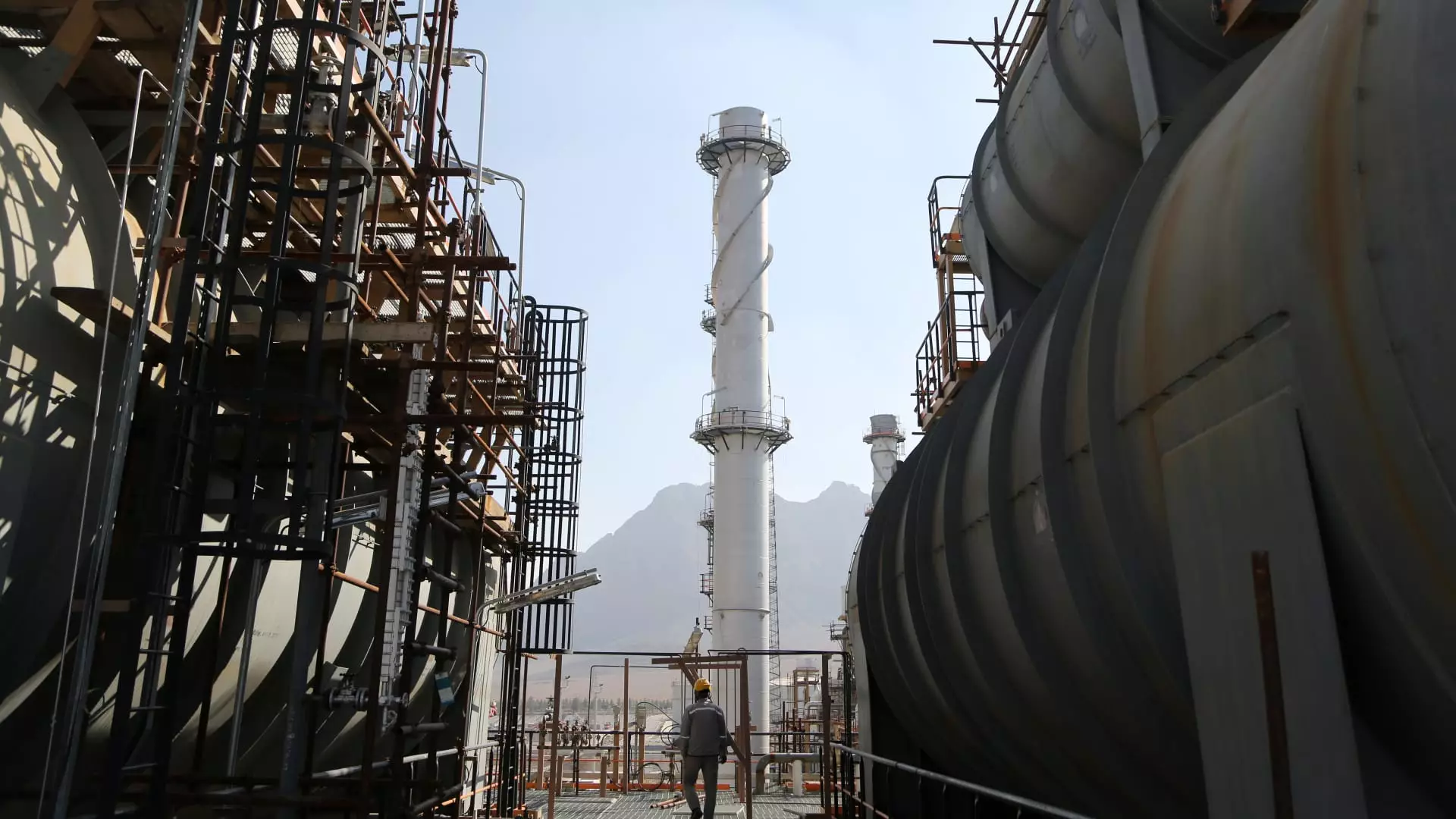Recent geopolitical events have cast a shadow of uncertainty over the global oil markets, particularly following a ballistic missile attack launched by Iran on Israel. This military engagement marks a significant escalation in the ongoing tensions in the Middle East, prompting oil analysts to reassess the potential threats to crude oil supplies. With Iran responding aggressively to Israel’s military actions, including the killing of key military leaders, the stakes in the region have reached new heights. The implications of these events extend beyond political boundaries, significantly affecting the delicate balance of global oil supply and prices.
As the situation deteriorates, experts have issued warnings about the imminent risk to oil production, particularly as Iran’s oil infrastructure could become a target for Israel in retaliation. Saul Kavonic, a prominent energy analyst, pointed out that the specter of a major disruption in oil supply is no longer merely speculative. With Iran being the third-largest oil producer within the OPEC framework, its potential to influence global oil prices cannot be understated. Currently, estimates suggest that up to 4% of global oil production could be at risk as military confrontation engulfs Iran. Should a military strike on Iranian oil facilities occur or sanctions tighten further, oil prices could surge past the critical threshold of $100 per barrel.
The immediate market reaction to the missile strikes has been palpable. Following the news, oil prices saw a significant uptick, initially climbing over 5% before stabilizing around a more modest gain of approximately 2%. Benchmark Brent crude prices are witnessing increased trading activity, while West Texas Intermediate futures are also reflecting upward momentum. The trajectory of these prices indicates that traders are recalibrating their strategies in light of renewed geopolitical risks, marking a dramatic shift from the period of “geopolitical risk fatigue” that had previously dulled market responses to international tensions.
Historically, the oil market has been sensitive to geopolitical developments, and the current military actions are no exception. Prior to this escalation, there had been limited disruption in oil markets despite ongoing conflicts in the region and Ukraine. However, the persistent increase in U.S. oil production and faltering demand from Chinese markets have generated downward pressure on prices. This counters the surge in prices that may result from a full-blown conflict involving Iranian oil.
Bob McNally of Rapidan Energy Group suggests that Israel’s response to the current Iranian aggression will likely be severe, marking the conflict’s transition into a new phase with heightened energy implications. With the potential for military actions that directly affect oil operations, the looming possibility of a severe response from both sides creates a climate of unpredictability that can shake up global supply chains and trigger spikes in oil prices.
Analysts have been closely monitoring the ramifications of recent events. The geopolitical environment remains volatile, with projections indicating that larger-scale military confrontations may lie ahead. The conclusion drawn by Ross Schaap from GeoQuant highlights an unsettling trend: as hostilities escalate, so does the likelihood of significant market disruptions.
Investment professionals like Josh Young have begun to echo these sentiments, asserting that recent escalations represent a dangerous moment for oil supply stability. Should an attack on Iranian oil facilities ensue, the ramifications would be felt globally, potentially sending oil prices soaring and affecting economies heavily reliant on stable energy supplies.
The escalation of military conflict between Iran and Israel underscores an urgent need for vigilance among oil market participants. The potential for significant disruptions to crude supply chains necessitates close monitoring of developments in the region. With analysts predicting an increased likelihood of severe geopolitical repercussions affecting oil infrastructure, stakeholders must prioritize strategic planning as the market braces for an intensely unpredictable future. As these conflicts evolve, the energy sector’s response will be critical in mitigating the impact of fluctuating oil prices on global economies.


Leave a Reply